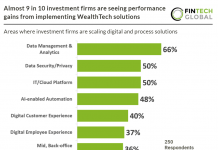Financial institutions play a pivotal role in preventing money laundering. Over the past 18 months, government bodies have frequently highlighted shell companies as significant red flags in anti-money laundering (AML) activities. Consequently, one must ask, is your institution actively identifying shell companies in its transactions? More importantly, can it detect shell companies with tangible sanctions and watchlist links?
Sigma360, a dedicated team in this space, has extensively focused on methodologies to pinpoint potential shell companies. Some of their proposed steps, albeit not exhaustive, encompass: analysing if the entity has been newly established, investigating if the company’s jurisdiction is notorious for tax secrecy or evading sanctions.
The New York-based definitive risk decisioning software platform also asserts that businesses should be scouting for similarities with previously identified shell companies when in a bid to detect them. This, along with verifying its legitimacy against transactional records, and assessing the company’s online presence and self-promotion, makes up the bulk of Sigma360’s strategy to snuff out shell companies.
Moreover, financial entities have expanded strategies like identifying shared directorships or recognising incorporation agents linked to past shell company operations. These tools considerably augment the identification of potential money laundering or sanctions evasion activities.
Apart from the evident regulatory obligations, identifying shell companies has gained immense importance from a reputation standpoint in light of current geopolitical events. A case in point is Maxim Marchenko. The U.S. Department of Justice has recently indicted him for money laundering and sanctions evasion.
Marchenko, alongside his accomplices, allegedly leveraged various Hong Kong-based shell companies to discreetly obtain and provide military equipment to Russia. Such companies, including Alice Components Co. Ltd., Neway Technologies Limited, and RG Solutions Limited, pose a genuine risk as they match the shell company criteria. Online data supports this connection to Russia, aligning with the Department of Justice’s findings.
But how can Sigma360 help? The firm offers robust updates to their core risk data encompassing:
- Extensive sanction lists, political exposure, enforcement action, and corporate coverage.
- Comprehensive corporate registry data, highlighting potential ownership and control.
- Risk screening, monitoring, and real-time unstructured data analysis from numerous global sources.
- Proprietary data attributes and global risk evaluation.
- A configurable platform tailored to detect a plethora of risks.
Read the full blog from Sigma360 here
Keep up with all the latest FinTech news here
Copyright © 2023 FinTech Global











